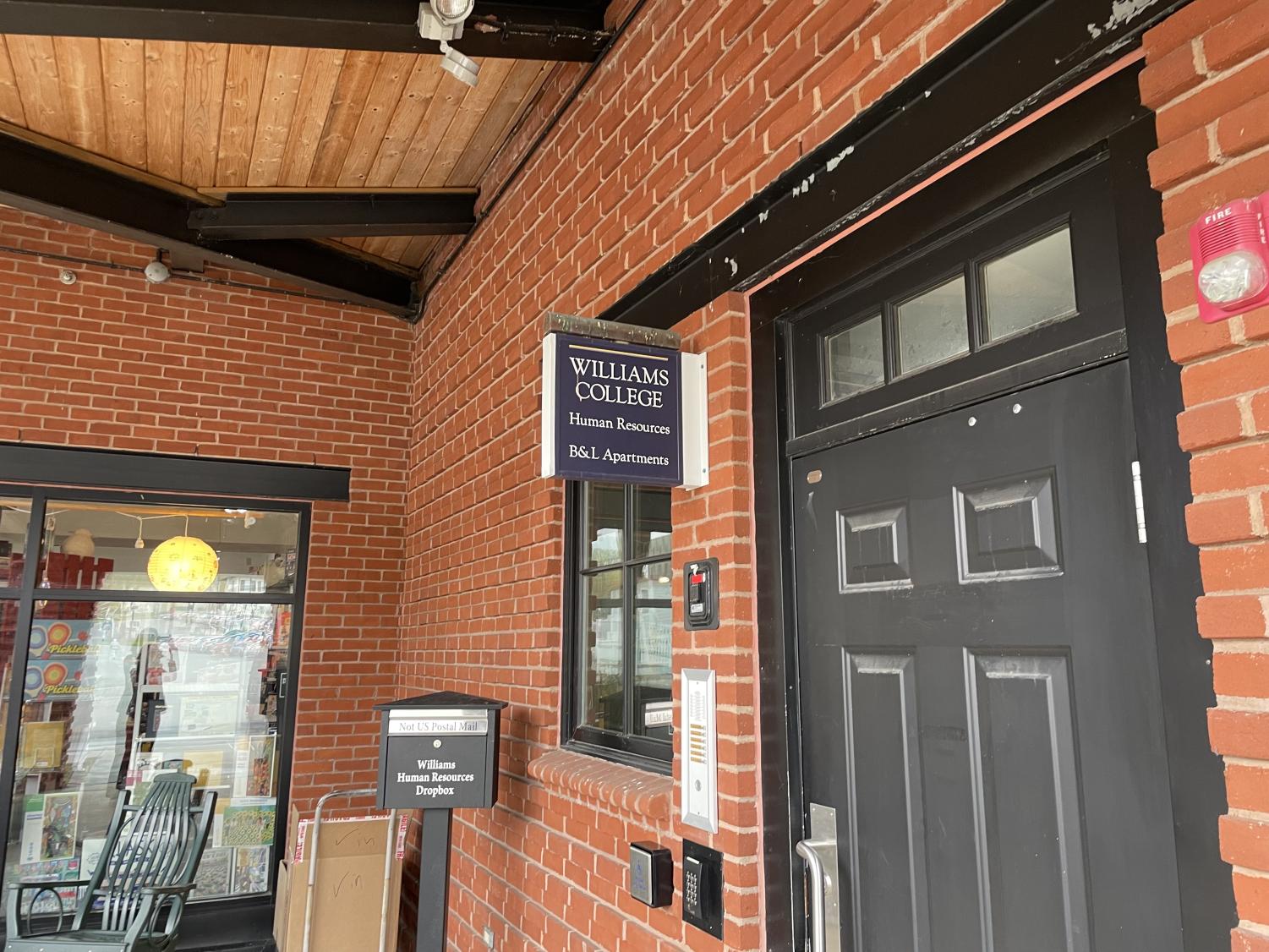Spouses of faculty struggle to find employment at the College
April 26, 2023

In 2016, Dawn and Ben Carone, both professors of biology, left Williamstown after the College did not offer them both permanent tenure-track positions. Two years earlier, the couple had come to the College after Dawn accepted a tenure-track position as an assistant professor of biology and Ben took a visiting position in the biology department. When the College didn’t offer Ben permanent employment, the couple felt it had no choice but to relocate, the Carones said in an interview with the Record.
In a location as remote as Williamstown, spouses of College faculty members can face limited employment opportunities. For spouses who are also academics, getting two tenure-track positions at the College can be difficult, forcing couples to make challenging decisions about their careers.
The College’s website states that “providing support for partners and spouses is crucial for attracting and retaining tenure-track faculty.” This was true for Professor of Psychology Marlene Sandstrom and Professor and Chair of Psychology Noah Sandstrom, who succeeded in securing two tenure-track positions.
“Getting two gigs here was winning the lottery,” Noah Sandstrom said. In 1999, the psychology department offered Marlene a tenure-track position in clinical psychology, and Noah took a position in neuroscience a few years later.
When an academic follows their spouse to Williamstown seeking permanent employment from the College, the dean of the faculty — a role which is held by Professor of Psychology and incoming Bowdoin College President Safa Zaki — manages negotiations.
The College employs, in some capacity, 15 percent of all faculty partners, but this does not mean that the College can always offer them a permanent, tenure-track position. The College often provides short-term teaching opportunities for faculty spouses, but, due to curricular and staffing demands, it can provide fewer long-term positions, Zaki wrote in an email to the Record.
When these visiting positions don’t lead to permanent positions, couples who have relocated to the Berkshires sometimes struggle to make life work in the Purple Valley.
Dawn and Ben Carone both came to the College in 2014 from two postdoctoral positions at the University of Massachusetts Medical School. The jobs they found at the College checked all of their boxes: The couple were close to family, they had the opportunity to teach and conduct research, and in Williamstown, they had access to the outdoors.
Unlike many other small institutions, the College’s biology department even employed a faculty member specializing in epigenetics — Ben’s area of study — so they hoped that Ben might gain permanent employment at the College. But when that epigeneticist retired, the department elected to hire an immunologist or biochemist instead, leaving Ben without any tenure-track positions open in his field.
During their second year at the College, the Carones began applying for positions elsewhere and found offers for two tenure-track positions at Swarthmore College and Rowan University, roughly forty minutes away from each other in the Philadelphia metropolitan area, where they said they plan to stay for the foreseeable future.
“There was no other decision for us to make, even though we really did like it [at Williams],” Ben said. “[We] did not feel support [from] the College to help us make it work.”
Couples who both work in academia — 36 percent of the academic workforce, according to a study by the Clayman Institute — have an especially hard time when they work in the same field, Manager of Spouse Partner Resources Cecilia Hirsch told the Record.
Hirsch works with spouses of faculty members to strategize how to make their careers work in Williamstown. Often this means helping spouses consider how to apply their skills to work in areas outside of academia.
Some faculty spouses at the College, like Casey Bohlen, a former visiting assistant professor of history and religion, face long commutes to seek academic positions at nearby institutions. Bohlen and his wife, Assistant Professor of Psychology Eliza Congdon, came to Williams from Bucknell in 2019, choosing a tenure-track position for Congdon at Williams over Bucknell’s offer of tenure-track positions for both of them.
The College offered Bohlen a three-year visiting position, but it was clear that no permanent opportunities at the College would be available, he said. “I felt as though I had no other choice except to take a position an hour-and-fifteen-minute commute away in order to extend the chance that I can maintain my academic career,” said Bohlen, who now works as a visiting assistant professor of history and public discourse at Smith College and makes the commute two to three times a week while caring for toddlers at home.
“It’s been hard,” Bohlen said. “The folks at Smith have been absolute angels, and I have loved it there, but I don’t think it would be anybody’s first choice for a commuting situation.”
Bohlen said he hopes to find a permanent tenure-track position within commuting distance but is also considering the alternatives of adjunct work or a non-academic career.
Visiting Assistant Professor of English Ezra Feldman and his spouse, Assistant Professor of Environmental Studies Laura Martin, came to the College after Martin received a tenure-track position. In 2017, when Feldman was hired, the College offered him a three-year contract for a three-quarter time position as a visiting assistant professor, though the College would not discuss the criteria for renewing his position.
Feldman felt “a weird balance of fortune and nervousness” when accepting the offer, but he tried to integrate himself within the department and campus community as much as possible. “That was the only thing I could do to make a home for myself at Williams,” Feldman said.
For the 2023-2024 academic year, Feldman will begin a three-year contract as a lecturer in science and technology studies, while still teaching an English course and a course for the graduate art history program.
“I feel awesome about where we’ve landed, and I feel good about the gamble that we took,” Feldman said. Amid employment uncertainty, young academics like Feldman and his wife weigh decisions regarding buying homes and having children. “The security of having a tenure-track job is a big factor,” Feldman said as he held his newborn over a Zoom call, reflecting on his and Martin’s decision to purchase a home after their third semester at the College.
Bohlen said the College could benefit from a more formalized system of spousal hiring, similar to what he experienced at Bucknell. Included in this system, he said, would be more transparent communication between hiring staff and potential hirees as well as a policy that hiring faculty spouses into tenure-track positions would not necessarily affect their future hiring requests.
“That would require acknowledging that hiring happens for a reason other than pure curricular need,” Bohlen said. “It would require specifically committing to hire spouses in the name of building an intellectual community.”
“[Spousal hiring] is important because we want to get great faculty,” Noah Sandstrom said. “Not surprisingly, great faculty often have spouses, partners, and families.”








